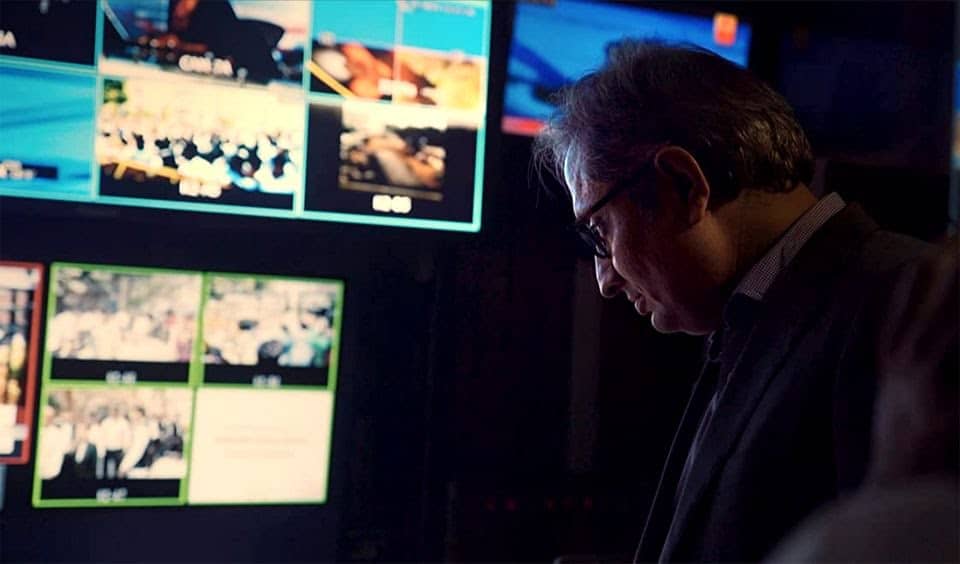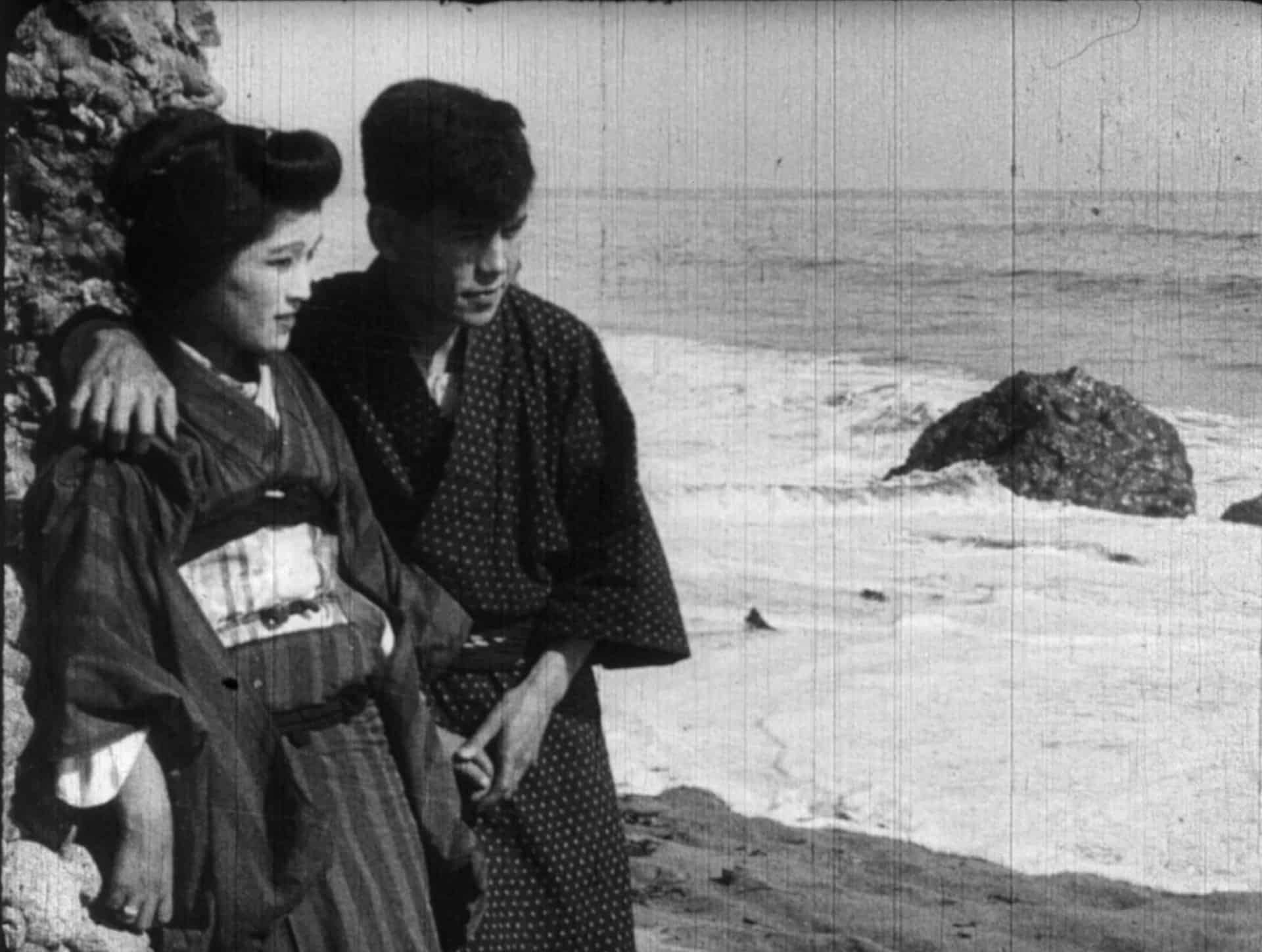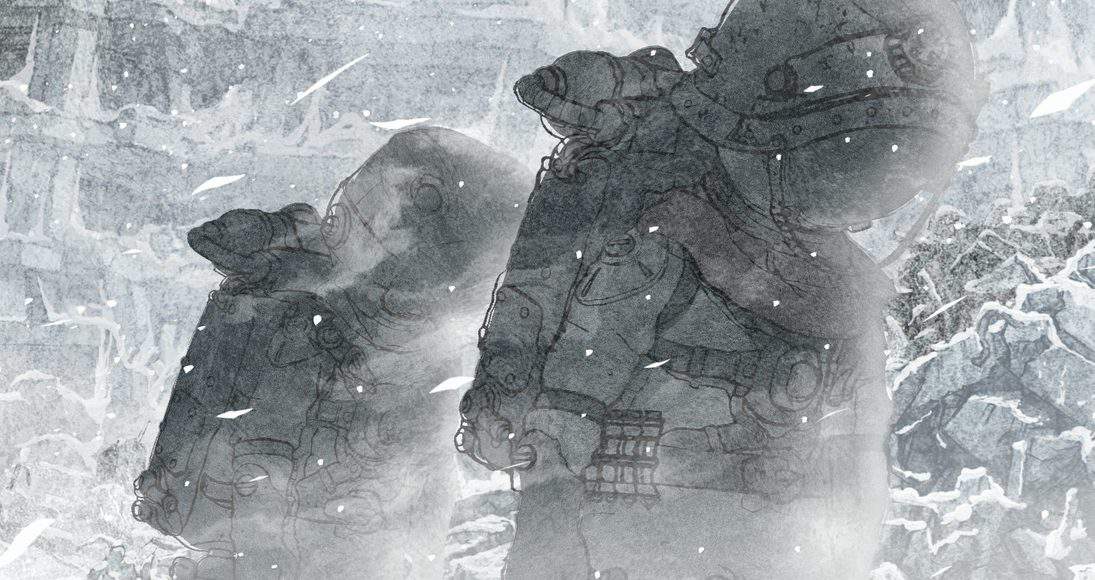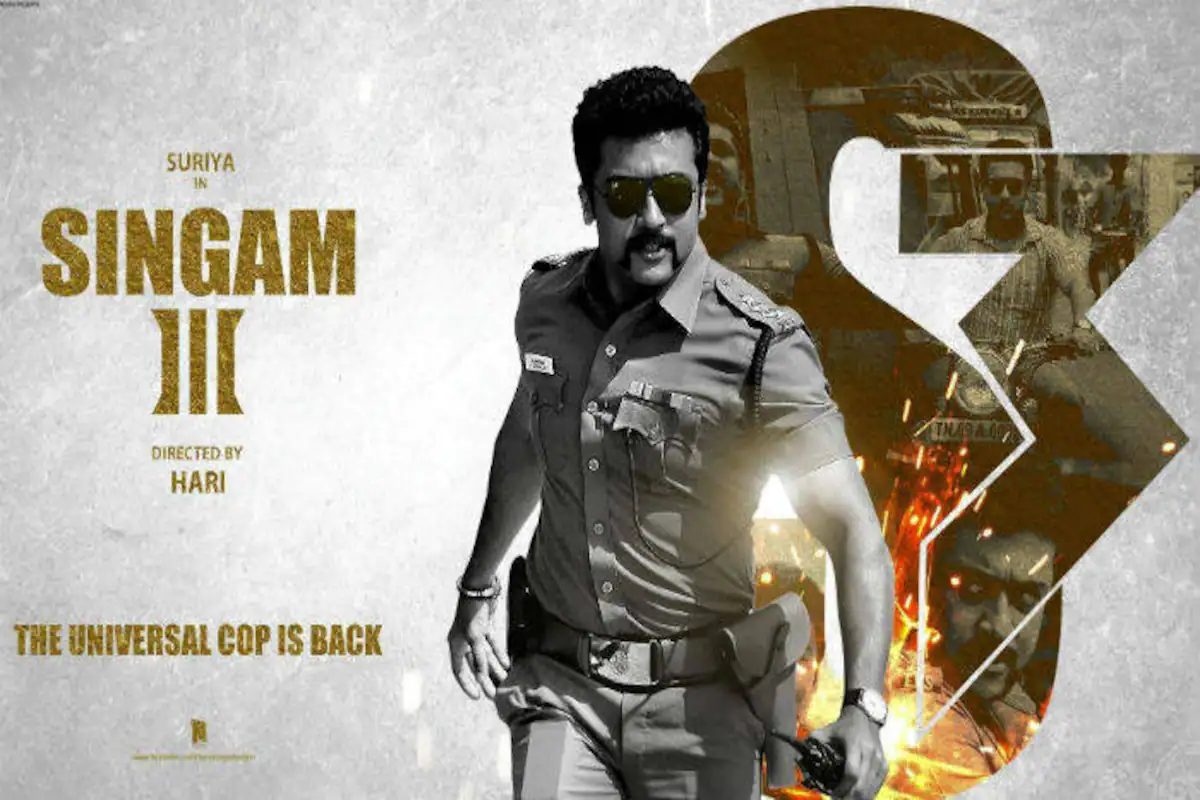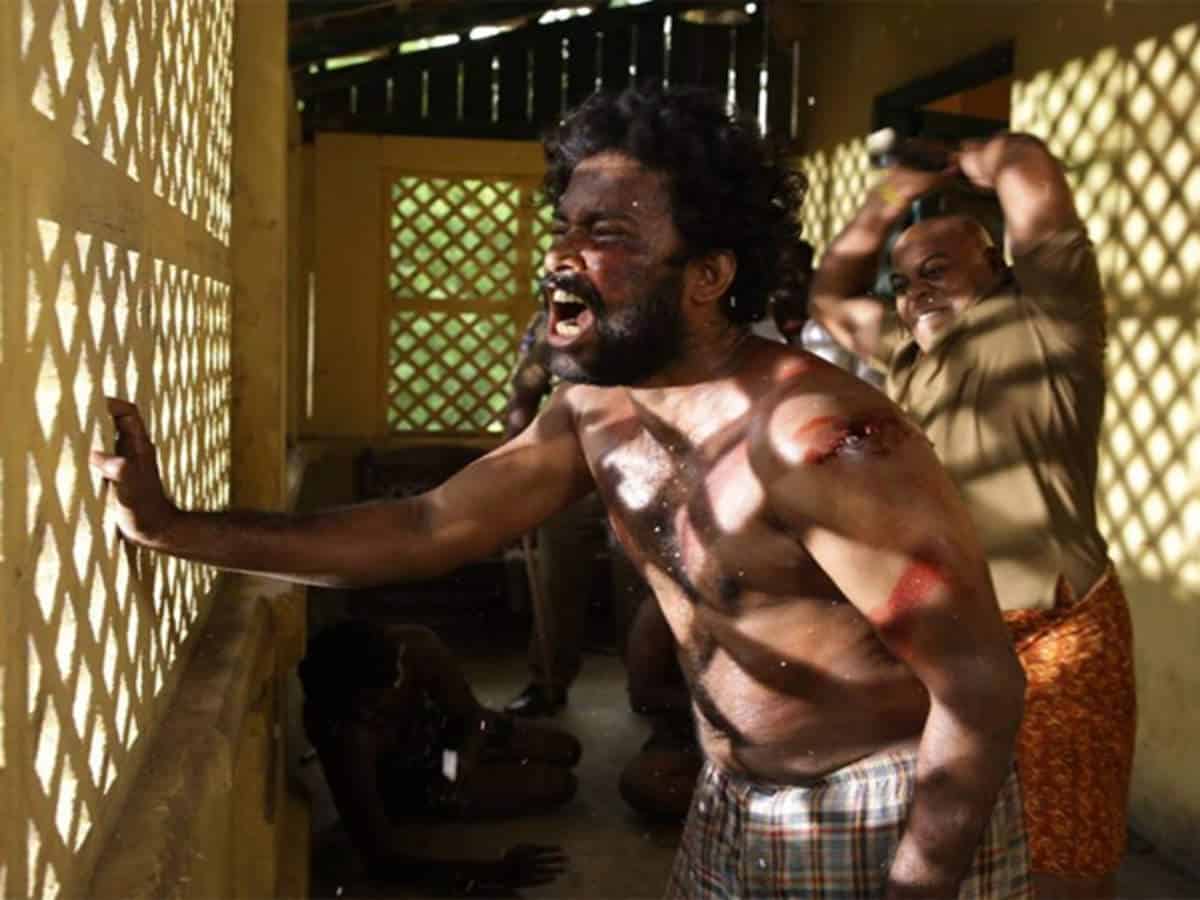Earlier this year, Indian news network NDTV — one of the only remaining mainstream media channels in the country that raised questions against its government — was acquired by the country's top oligarch, the Adani Group. An open supporter and old friend of the country's prime minister, Gautam Adani's acquisition further raised doubts about the state's crackdown on freedom of speech and expression, manifested by disqualification of opposition MPs and wide crackdown on dissenters as well as dissidents. Following the acquisition, one of the country's most talked about senior journalists resigned from the news channel. Vinay Shukla's poignant new documentary tells the story of that one journalist.
“While We Watched” is screening at San Diego Asian Film Festival Spring Showcase

The 92-minute documentary starts with Ravish Kumar walking into an abandoned floor with its walls and ceilings being taken apart. Holding a flashlight in his hand, he walks across the room, carefully examining the withering pieces while standing in silence. It only dawns upon the viewer toward the end of the film that the abandoned place was an entire floor of the NDTV workspace that now had shut down owing to more and more people leaving. The grim reality only gets bleaker as it arrives with the election results of the 2019 general assembly elections, where the country's far right-wing party was brought back to power with a sweeping majority.
Ever since he started working as a reporter for NDTV almost three decades back, Kumar has been the recipient of countless awards in journalism. For most of his life, even after he got promoted to the position of a senior executive editor, Kumar's personal life had fairly been away from the public eye. Shukla's approach to those aspects feels sensitively handled, as we watch tender moments of Kumar with his wife and young daughter. Around his workspace, the camera gently follows Kumar's point of view. The sensibilities here are that of a turbulent newsroom drama, yet never devoid of nuanced moments that speak to the harrowing task of pursuing truth in the post-truth era. It's along those lines that Shukla humanizes the process of journalism itself.
For the most part, the film is shot with a surprising restraint that makes the audience feel more passive. The same passivity is even reinforced with the deep seethed paranoia of being ahead of the events which the documentary chronicles; the years post 2016 saw a general rise in populist leaders across the globe along with the mainstreaming of xenophobia. After all, the wave of disinformation has contributed to the eroding of social fabric worldwide. But the road leading upto the general election of 2019 in India saw a different sort of the ideological project in swing – one that was singularly communal and wore the garb of nationalism. Many people called out on how it would only intensify. Watching the NDTV journalists in “While We Watched” and knowing how it turned out makes the dreary reality somehow even more harrowing. It's a reality where every dissent is treated as treason.
But what makes Shukla's documentary great, is that it never gets overly didactic by placing its antagonist in the foreground. The emphasis primarily remains on Kumar, and it's his perseverance against the normalization of authoritarianism which forms the heartbeat of the story. At the office, we see a running theme of cakes being cut as a mark of an employee quitting the news company which was once pioneered as a safe haven for diverse voices. It's done till a point where it becomes a gag, and that's precisely what makes the dichotomy more poignant. There are better prospects offered elsewhere, a space that's increasingly hijacked by populist news with colorful sets and overly loud anchors. A space where virtually no attempt is made to distinguish factual reporting from nationalist diatribes, where everyday a new voice of dissent gets labeled as ‘anti-national'.
On the other hand, Kumar's house life is laced with touches that no voiceover would ever do justice. At one point, the young daughter who shares a keen interest in singing tells Kumar – overwhelmed by communal news at the workplace – “The day your voice is ready, I'll teach you how to sing”. It's her father's combination of steadfastness and commitment to a baseline of moral decency that continues to act as a voice of reason amidst the chaos within and outside his organization. The camera frames him in claustrophobic corners, juxtaposing his composed persona in front of hyper-jingoistic anchors while simultaneously telling a story of adult loneliness. Thus, Ravish Kumar's story remains a story of resilience, because despite the cost, he remembers to never exude resentment in maintaining his ground. Because if a journalist were to do that, what difference would it leave between him and the ‘strongmen' whom we elevate to iconic status.
“NDTV gave me all the independence I needed”, Kumar says at the start of the film while we watch him in active search of more ground level reporting. While receiving a national jury prize award for Best Hindi news Channel, he acknowledges how in a battle for truth and justice, “There was NDTV that stood against the mob”. Kumar, both on his prime time show and even off air, frequently mentions the works of George Orwell, most notably passages from 1984. Somewhere between watching him acknowledge the news network that once gave him a larger voice, and living with the reality of seeing its takeover by a crony oligarch, context has widely shifted. The documentary ends with the increasingly timely speech he gave while accepting the Ramon Magsaysay Awards, yet the reality with recent developments in India poses a grave danger of how easily our modern day institutions could collapse, even when it's done with a consensus built on lies. But Ravish Kumar continues to speak against those lies. That's when you know institutions don't last forever, and neither do leaders who make them frangible.


